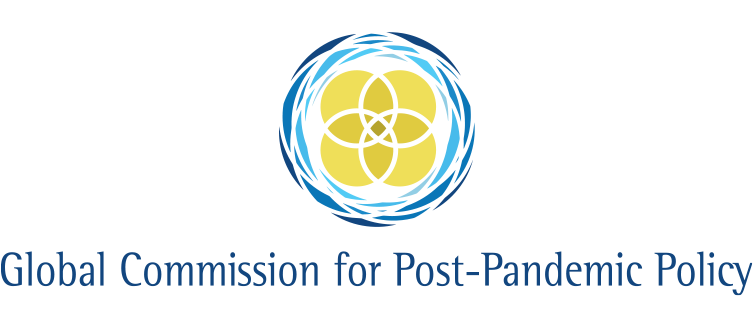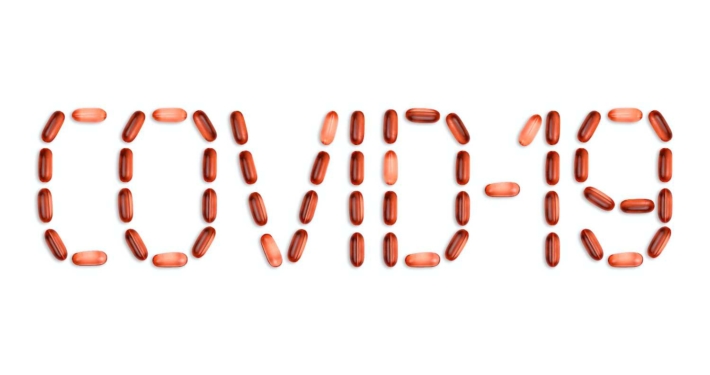The Pandemic, week to April 19th
Health
It was a week of grim milestones as the world passed 3 million Covid-19 deaths on April 17, with Europe as a whole also passing 1 million deaths and France becoming the eighth nation globally to top 100,000 deaths. Global cases continue to increase, with India accounting for the most new infections by far as several other countries battle worrying surges including Turkey, Canada, Japan and parts of the US and EU. Meanwhile, several governments seeing more benign trends have begun to ease restrictions, including Portugal and the UK.
In the US, authorities recommended a “pause” in the use of the Johnson & Johnson vaccine while the Centers for Disease Control and Prevention (CDC) and the Food and Drug Administration (FDA) investigate unusual blood clots in six women between the ages of 18 and 48 who had received the jab, one of whom has died. The CDC will hold an emergency meeting on April 23 to discuss the issue. However, the government has said the pause will not delay its vaccine programme, which has now administered over 200 million doses and ensured half of all US adults have received at least one shot.
Deliveries to Europe of the J&J vaccine will also be halted, Johnson and Johnson announced, pending the European Medicine Agency’s study. France’s industry minister told RMC radio that, although no formal decision has been made, it is unlikely that the EU will be buying any new doses of the Johnson & Johnson or AstraZeneca (AZ) vaccine, another shot that has been linked to extremely rare blood clots. COVID-19 itself causes blood clotting: researchers at the University of Oxford have found that COVID-19 patients are over seven times more likely to suffer the clots, known as cerebral venous thrombosis (CVT), than uninfected people who have had one dose of the AZ jab.
Three vaccine manufacturers have now confirmed that follow-up doses will probably be required to protect against mutant COVID variants. Pfizer CEO Albert Bourla said “a likely scenario” is “a third dose somewhere between six and 12 months, and from there it would be an annual re-vaccination.” Moderna is also at work on a booster for its vaccine, and Johnson & Johnson has said that its single-shot vaccine will probably need to be given annually.
India is now at the epicenter of the pandemic, with new cases well above 200,000 daily. Delhi — which has overtaken Mumbai as the hardest hit city — imposed a weekend business shutdown, while several Indian states and South Asian neighbours Bangladesh and Pakistan also imposed shutdowns as infections rose. India’s confirmed death toll from COVID-19 is now 180,000. The eruption of cases in the world’s second most populous nation is causing concern globally, with one UK immunologist warning an Indian variant could “scupper” Britain’s newfound freedoms as 77 cases of the Indian variant were confirmed in the UK. However, the variant in question is currently regarded as a “variant under investigation” rather than a “variant of concern”.
In Chile, cases have surged despite a notably rapid vaccine rollout. Its government has been criticised for ending restrictions too early, including international border controls, as the country’s daily death toll has topped 100 for the first time since July 2020. In more hopeful news, real-world testing of millions of Chileans who had received the Chinese-developed CoronaVac vaccine has found it 67% effective against symptoms and 80% against death, in one of the broadest studies of any vaccine.
In South Africa, the first step in its mass vaccination campaign began by opening online registrations for the elderly to receive shots beginning next month. Other countries lagging in vaccine delivery have seen positive developments too, with Iran finalising a deal to purchase 60 million Sputnik V vaccines from Russia and South Korea agreeing a licensing arrangement with Novavax allowing local biotech firms to produce its vaccines from later this year.
The US government has spearheaded two global initiatives in the fight against COVID-19. First, the Biden administration announced plans for a $1.7 billion network to track coronavirus variants of concern. This will include a funding boost for the CDC and health departments to ramp up gene-mapping, research new technologies for gene-based surveillance of pathogens, and build a database to monitor emerging disease threats. The US Secretary of State, Antony Blinken, also launched an appeal to other countries to raise a further $2 billion for the COVAX initiative distributing vaccines to poor countries. An initial one-day event raised more than $380 million in pledges, with Sweden raising its current donations from $20 million to $280 million. The US already accounts for $4 billion of COVAX’s existing $8.8 billion worth of donor commitments for 2020-25.
175 former world leaders and Nobel Laureates signed an open letter calling for US President Joe Biden to waive intellectual property rules on COVID vaccines and treatments and ensure “vaccine know-how and technology is shared openly”. The signatories encouraged President Biden to take this “unparalleled opportunity for the US to exercise solidarity, cooperation and renewed leadership”.
Economy
The IMF has urged eurozone governments to continue to support jobs and economic recovery, adding that government spending needs to play an increasingly larger role. In its Regional Economic Outlook for Europe, the IMF forecasted growth this year will be 4.5% — slightly less than its forecast made in October last year, due to new waves of infections and further lockdowns. The recovery is “still moderate” and uneven across the bloc, with industrial production back to pre-pandemic levels but service activity is still shrinking with economies like Croatia, Italy and Spain badly affected.
In China, the economy grew a record 18.3% in the first quarter of 2021 compared to the same quarter last year. This is the biggest such jump since China started keeping quarterly records in 1992, but still slightly below economists’ consensus predictions and chiefly reflects a bounceback from the country’s early and strict lockdowns, one year ago. “The national economy made a good start,” said China’s National Bureau of Statistics, but added: “We must be aware that the COVID-19 epidemic is still spreading globally and the international landscape is complicated with high uncertainties and instabilities.”
The UK economy returned to growth in February, with GDP rising by 0.4% compared with January, following a revised drop of 2.2% in that month. The trade drop-off caused by Brexit at the turn of the year moderated, but both imports and exports remained below levels in February 2020. The economy remains 7.8% smaller than a year earlier. Nevertheless, the FTSE 100 share index closed over 7,000 for the first time since February 2020.
Politics
In Brazil, Congress has launched an inquiry into the federal government’s handling of the pandemic. Critics of President Jair Bolsonaro will get a high-profile platform to highlight his management of the virus, which the president dismissed as a “measly flu” and resisted lockdown measures to reduce its spread. After months of Congress showing little interest in holding such an investigation, the Supreme Court ordered the leader of the Senate to open a special inquiry. President Bolsonaro has in turn pressed allies in Congress to broaden the scope of the inquiry to include the actions of municipal and state governments, many of whom are political rivals. In some recent weeks, Brazil has accounted for as much as 26% of global Covid deaths and 11% of new cases.
The CEO of Serum Institute of India, the world’s largest vaccine manufacturer and a critical supplier to the COVAX facility, appealed directly to President Biden on Twitter to lift the US embargo on exporting raw materials needed to make the jabs. Moderna chief Stéphane Bancel made similar comments in an online event, claiming export embargoes were also preventing American vaccine manufacturers from exporting shots globally and resulting in shortages. Meanwhile, India will fast-track the approval of any vaccines green-lit by the WHO, EU, Japan, the UK or the US, as recommended by a panel of Indian scientists.
In Japan, a resurgence of the virus has cast doubt on the Tokyo Olympic Games just three months ahead of the scheduled opening ceremony. A top ruling-party official suggested the option of canceling the Olympics remains open, although the government itself insists the Games will go ahead. Tokyo, Osaka and four other prefectures are now on virus alert status, giving local authorities powers to order shorter hours at bars and restaurants. Japan’s vaccine rollout remains slow, with shots for its sizeable elderly population beginning only on April 12.
In Zimbabwe, 3,000 prisoners will be released under a presidential amnesty designed to reduce the risk of COVID outbreaks in the country’s overcrowded jails. Those to be released are convicted of nonviolent crimes. The commander for prisons in Harare said prisons in the capital had seen 173 confirmed infections and one death. Zimbabwe has recorded 37,534 cases of COVID-19, including 1,551 deaths, according to the Africa Centers for Disease Control and Prevention.
The UK government’s contact-tracing mobile app has seen a new update delayed because it apparently breached privacy rules laid down by Apple and Google. The update was intended to add features to aid the easing of the UK’s lockdown restrictions on April 12. This included asking users who test positive to upload a list of venues where they’ve checked in to help with tracing others with whom they might have come into contact. But that would violate privacy-focused rules that ban the apps from using location data, the BBC reports, so Google and Apple blocked the update.
Photo by Kevin Grieve on Unsplash
GCPPP Newsletter
We now publish a weekly newsletter to inform friends and supporters of the Global Commission’s progress and to provide updates when new content is published. Please sign up here:


 Volodymyr Hryshchenko, Unsplash
Volodymyr Hryshchenko, Unsplash
 Adam Nieścioruk, Unsplash
Adam Nieścioruk, Unsplash
 visuals, Unsplash
visuals, Unsplash


